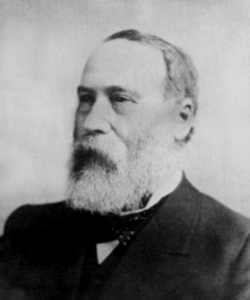Authors - Charles Caleb Colton
Brief Biography
Charles Caleb Colton (1780 - 1832) was an English cleric, writer and collector, well known for his eccentricities. Colton was educated at Eton and King's College, graduating with a B.A. in 1801 and an M.A. in 1804. In 1801 he was presented by the college with the perpetual curacy of Tiverton's Prior's Quarter in Devon, where he lived for many years. He was appointed to the vicarage of Kew and Petersham in 1812. His performance of church-related functions at both locations was erratic: at times conscientious and brilliant while at other times cursory and indulgent. He left formal church service, and England, in 1828. Contemporaries believed that he had fled from his creditors, who took out a legal "docket" against him, identifying him as a wine-merchant. - Wikipedia
Men are born with two eyes, but only one tongue, in order that they should see twice as much as they say.
If you cannot inspire a woman with love of you, fill her above the brim with love of herself; all that runs over will be yours.
The greatest friend of Truth is time, her greatest enemy is Prejudice, and her constant companion Humility.
Friendship often ends in love; but love in friendship - never.
Ladies of Fashion starve their happiness to feed their vanity, and their love to feed their pride.
We hate some persons because we do not know them; and we will not know them because we hate them.
Much may be done in those little shreds and patches of time which every day produces, and which most men throw away.
Many books require no thought from those who read them, and for a very simple reason; they made no such demand upon those who wrote them.
To know the pains of power, we must go to those who have it; to know its pleasures, we must go to those who are seeking it.
To dare to live alone is the rarest courage; since there are many who had rather meet their bitterest enemy in the field, than their own hearts in their closet.
Deliberate with caution, but act with decision; and yield with graciousness, or oppose with firmness.
If you would be known, and not know, vegetate in a village; If you would know, and not be known, live in a city.
Examinations are formidable even to the best prepared, for the greatest fool may ask more than the wisest man can answer.
Imitation is the sincerest of flattery.
There is a paradox in pride: it makes some men ridiculous, but prevents others from becoming so.
None are so fond of secrets as those who do not mean to keep them.
When you have nothing to say, say nothing.
Times of general calamity and confusion create great minds. The purest ore is produced from the hottest furnace, and the brightest thunderbolt is elicited from the darkest storms.
In life we shall find many men that are great, and some that are good, but very few men that are both great and good.
Marriage is a feast where the grace is sometimes better than the dinner.
To know a man, observe how he wins his object, rather than how he loses it; for when we fail our pride supports us; when we succeed, it betrays us.
Men's arguments often prove nothing but their wishes.
